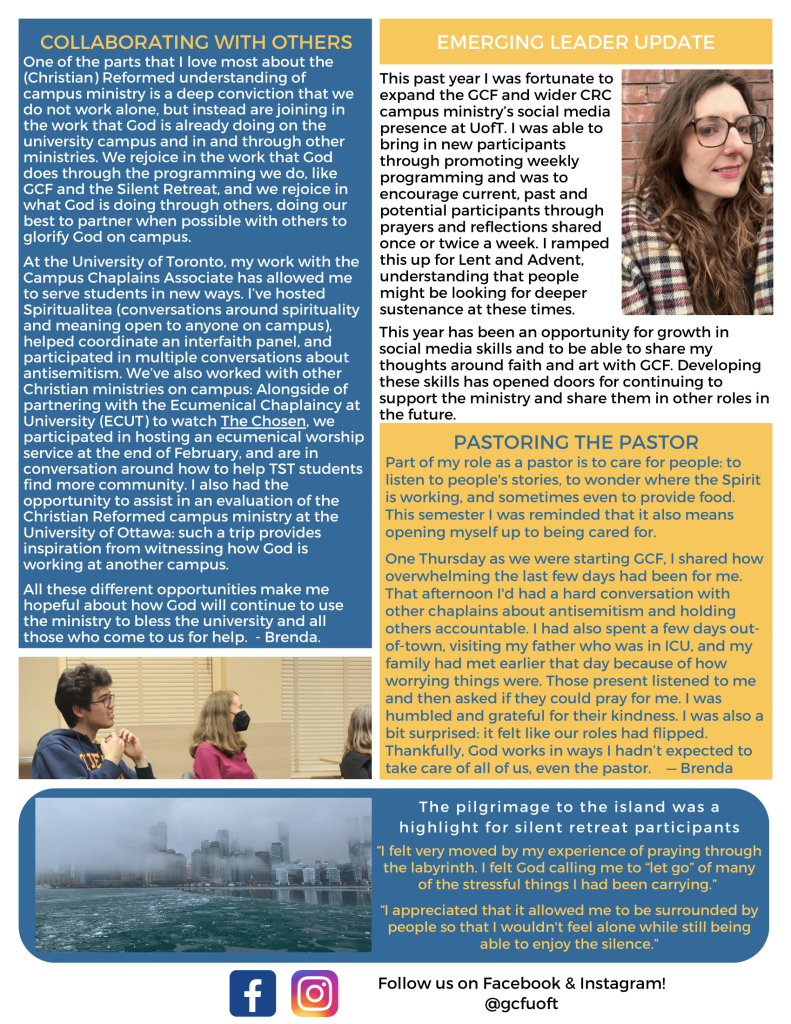The following is our spring newsletter


It can also be found as a pdf here.
As we start our gatherings, we “acknowledge the history, spirituality, culture, and ancestral stewardship of the land on which we regularly meet by the Huron-Wendat, Haudenosaunee and Anishinabek Nations, and the Mississaugas of the New Credit First Nation.” We continue our land acknowledgement with words that one of our emerging leaders helped us adopt several years ago: “we commit ourselves to seeking to live out the Good Way, which encompasses both love and humility as we bravely journey towards the justice which Jesus proclaimed with his words, life, death and resurrection.”
Our land acknowledgement recognizes our complex histories of the land on which we live and gather and reminds us of our desire to learn from other cultures. One way we as a community have chosen to more actively learn from Indigenous wisdom is through using the First Nations Version of the Bible, which is an Indigenous translation of the Bible. Using a different translation of the biblical text can be helpful for hearing the text in a new way; furthermore, the use of cultural norms and words that are different from what many of are used to can challenge our assumptions about what the text means.
As we have been using this version of the Bible at our gatherings these past few years, many people have commented on how the translation uses descriptions for names, such as Creator Sets Free (Jesus), Bitter Tears (Mary), Father of Many Nations (Abraham) and House of Bread (Bethlehem). Such descriptions may feel distracting at times but most of us have found them helpful, as they provide us with extra information for understanding the biblical text, including the meaning of the words in the original language.
Using the First Nations Version of the text is a simple and concrete way of acting out our desire to learn from Indigenous voices. We are hopeful that the Holy Spirit will work in and through this translation to allow many to grow in appreciation of the Bible and how we can learn from other cultures.